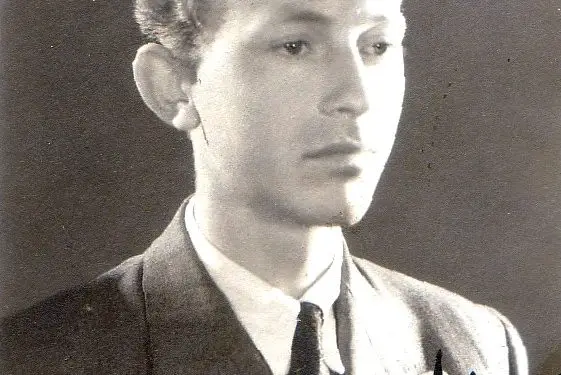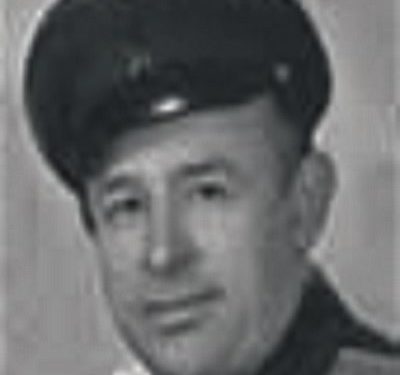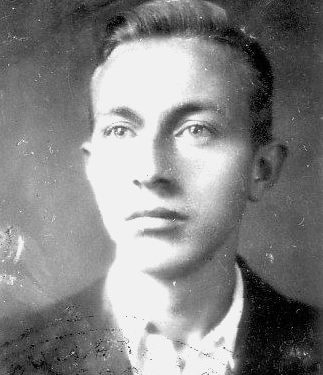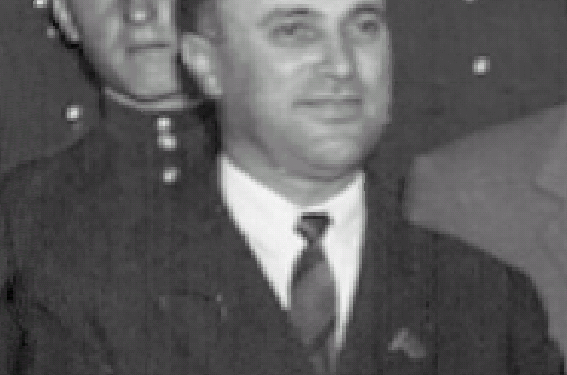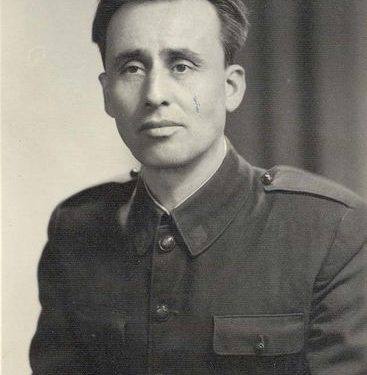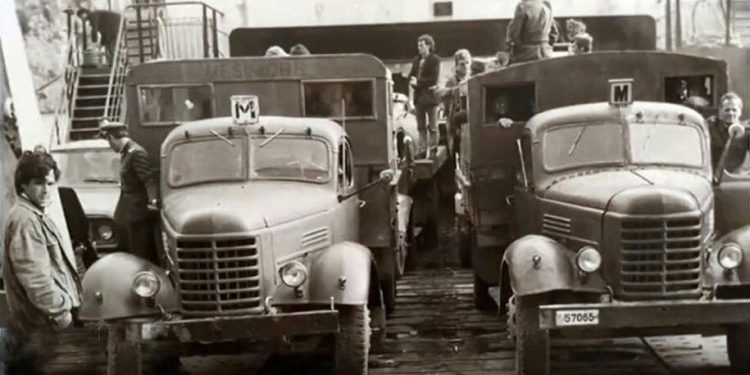By Uran Kalakulla
Part Eight
Nazism and Communism
Memorie.al / Nazism lasted 12 years, while Stalinism lasted twice as long. In addition to many common characteristics, there are many differences between them. The hypocrisy and demagogy of Stalinism was of a more subtle nature, which was not based on a program that was openly barbaric, like Hitler’s, but on a socialist, progressive, scientific and popular ideology, in the eyes of the workers; an ideology that was like a convenient and comfortable curtain to lie to the working class, to lull the sharpness of intellectuals and rivals in the struggle for power.
One of the consequences of this peculiarity of Stalinism is that the entire Soviet people, its best, most capable, hardworking and honest representatives, suffered the most terrible blow. At least 10-15 million Soviets lost their lives in the torture chambers of the KGB, martyred or executed, as well as in the camps of the Gulag and others like them, camps where it was forbidden to correspond (in fact they were prototypes of the Nazi death camps); in the mines in the ice of Norilsk and Vorkuta, where people died from cold, from hunger, from crushing work in countless construction sites, in the exploitation of forests, in the opening of canals and during transportation in lead-lined wagons, or in the flooded barns of the death ships.
Continued from the previous issue
In the dungeons of Durrës
The place where they took us was more like a police station, or a kind of underground station, somewhere opposite the current Durrës Court. A year after I had been released from prison, I went to Durrës, which was confusing to me. 22 years had passed since I had last been there. I was interested in seeing that gloomy place once again, at least from the outside, but they told me that it no longer exists, because of the new constructions.
On the one hand, I was glad that that place of torture had been wiped off the face of the earth, but on the other hand, from the perspective of today, as I write this book, I say that perhaps it would have been better if it had been preserved as a museum. But, in our country, the museums of the dictatorship, it seems that the governments that came after 1991 did not like them very much! And the traces of communist crime remained only in the body and soul of our prison comrades, of great suffering. Oh, what an irony of fate!
The first dungeon that I was assigned by lot was the one with no. 28, in a narrow corridor, always damp and half-dark, with many such dungeons on both sides of it. My dungeon led off a small, triangular-shaped courtyard, to which we, the “pre-detainees”, had to ventilate ourselves, one by one or, as many as could be in each dungeon.
That dungeon, as well as all the others, was even smaller than the one in Tirana. If they lay down in it, it would not hold more than two people. So, it was like a kind of case, not to say like a living coffin. But, just as high as the one in Tirana. So, like a box where one could breathe, especially in the heat, when the sun turned its terrace like a correctly. Moreover, even the only window on the courtyard side was more than half covered with boards, so that the one who locked them inside could not see from there in the small courtyard, any other unfortunate person, for the sake of the great secret that must exist there.
There I found a new subject, a stout creature, truly human in appearance, but who immediately reminded me of that large poisonous frog, which the people know by the name of “Tithlopë”. He seemed to me to be the prototype of the male, whom I had never had sympathy for: fat, not with muscles, but with fat, with a somewhat yellow skin, which looked like cow fat. This guy had put on a scarf tied at its four corners, creating a kind of cap, which made him even uglier. He must have been over forty years old; with eyes like those of a jackal, where he gave a cunning look, of a man as trained in life as he was morally degraded.
They called him Qani Slatina, originally from a village in Pogradec, from a good tribe (as I later learned), but it seems that he had become “needy” of his own chimney. Years later, I met in prison camps and in the Burrel prison a first cousin of his, who was called Haki Slatina. But Haki, although small and weak from long imprisonments, was not only smart and sharp-tongued (although not very educated), but also had an iron character and exemplary civic morality.
Such was Haki, a worthy representative of his tribe. There is nothing you can do about it, not every “swimmer” in the great and deep sea of virtue manages to reach the shore during a storm, like the one that engulfed our unfortunate people, for nearly half a century, even if these “swimmers” are brothers, and not first cousins. The game of genes is often completely incomprehensible, and why not even meaningless!
So, while Haki Slatina was a classic model of the anti-communist political prisoner, Qani Slatina had been reduced to a dungeon rat. And, therefore, that was where I found him. That is why they took me there, to that dungeon. At that time, I did not have much information about the games and tactics of the Sigurimi; nor about prison life, and even less about the time of investigation, this preparatory stage of the prison, which was often much more difficult than the prison itself.
So I had no idea of the existence of a special kind of “rats”, who although they looked like people, were in fact “rats”, blood brothers of the garbage rats, those that infect the world with the germs of typhus, cholera and other deadly diseases like these. But when, out of desperation, I had to talk to this Qani, I did not confide my investigative troubles, simply because I did not like him, simply because he seemed completely unworthy to share my great troubles with him, whether in extent or in depth.
Now, in that dungeon I had my own mattress. I had a little food and cigarettes. And, in this respect, I was better off than in the first dungeon in Tirana. And I talked to Qani “the mouse” only about work and ordinary life events. He told me that he had been a partisan, that after the war he had been released from the army with the rank of lieutenant, that he had been a grain warehouseman in Kavaja and that he was in prison for embezzlement, sentenced to eight years. He was there supposedly because he had appealed the law, to reduce his sentence. That he had a wife and children, who, with his imprisonment, had been left like a fish out of water.
To tell the truth, I felt sorry, not for him, but for his wife and, especially, for the children. Because, for the children, I have never asked and do not ask, to this day, what kind of father they have. For me, the children are equal, before my eyes and heart. As I found out later, this same Qani, in his rat-like course, after that of the partisan-officer, the storekeeper-thief, had managed to make two policemen of the Kavaja dungeons his own, apparently his fellow villagers, and together with them, he had managed to get out of the dungeon and escape towards the South, passing through Greece. And then first to England, with political asylum! Oh, what paradoxes this world has!
On the evening of the first day, when I was already in dungeon no. 28, I was hurriedly called to the investigator. In the two-story building in front of the dungeons, up in an office on the second floor. Behind two tables, sat two big security guards, the head of the Tirana Branch, whom I already knew, Jonuz Mersini, and a colleague of his. While the first one hardly spoke, he continued to glare at me, the second one who addressed me with arrogance, holding himself up even bigger, even stronger than Mihallaq Ziçishti, in the Tirana Branch, as I have shown.
Later I found out that he had been Kopi Niko, a man who was both criminal and despicable. Even so much so that, sometime later, they fired him, took him to an agricultural cooperative in Rrogozhina and there he died abandoned, despised and in misery, even during the time of the government, which he had served with fanaticism to the point of crime.
I don’t know, but to this day, I feel a pang in my soul when I think that that animal, a whore, a thief, and a vagabond, had the right to question me, with such cruelty, and to have my future fate of life and prison in his hands! It’s a feeling of revolt that will probably only fade when I die.
And that night I maintained the same position that I had maintained in Tirana, pretending to be ignorant and innocent. And the next day, they called me back. That was why they had brought me there. Only, this time, it wasn’t the two presidents, but for the Durrës Branch it was its vice president, Kapllan Sako, and from the military prosecutor’s office, a big colonel with the surname Skënderi. Okay, the Branch guy, but what did the military prosecutor’s office have to do with us?! We were all civilians. It was already becoming clear that the matter was getting serious, that we had entered the clutches of a political organization, that a military trial awaited us.
– “Defendant”! – began the first deputy head of the Branch, Kapllan Sakoja, with that gallantry of his in his attitude and arrogance in his speech – “We have called you here to inform you that you are accused of hostile activity, to the detriment of the people’s power, that you have three articles of the criminal code in your charge. Here is the indictment, which you must sign before the investigation process begins”.
I understood very well what this Kapllan was saying. I looked at him attentively, without saying a word. He was a man of somewhat average height, leaning slightly towards height, but very handsome, with a thin and triangular face, with some floppy ears, like the fenders of a Soviet “Zis” car, a skin somewhere between pale and green, like that of all the security guards I had known before, in the Tirana investigation. He had a pair of ugly eyes, with a fierce look, like that of a beast, when it is about to attack, to tear its prey. And the name Kapllan, suited him very well. Why, doesn’t the Turkish name mean tiger; Kapllan?
Only after this investigation of his physique and physiology did I speak: – “I will not sign any report, or any other document, whatever you ask, because: first, I do not know at all what the articles you have listed there contain, because I am not a lawyer and second, I will not sign because, I have done nothing, to feel guilty. You have arrested me in vain and I am waiting from moment to moment, to let me go home”.
– “As for the recognition of the articles, he is right,” intervened the thick and tall prosecutor, with a mustache like the deputy head of the Tirana district branch, who reminded me of the muzzles of the tsarist handars. And, as he said this, he took out a rather small book from his bag and handed it to me. It was the Criminal Code. I opened it and saw that article 73/1, which I had in the indictment, was for agitation and propaganda and had a punishment of 3 to 10 years, deprivation of liberty (agitation and propaganda in peacetime, because in wartime, the punishment was 10 to 25 years of imprisonment. or shooting). Another article of the indictment was 64.
This was the article of treason against the Fatherland, with 13 paragraphs, which included: escape, espionage, terrorist organization or conspirators, and other such things. And the punishment was, for all paragraphs, from 10 to 25, or by death. And death was by shooting, or by hanging. The last article in that damned indictment was the 76th. This article had no sanction of its own, but was a kind of interpretative article, aggravating for the other two articles.
I closed the Criminal Code and returned it to the prosecutor, turning to my two new investigators, that I did not accept any of the charges and that I did not sign that charge at all. My answer made Kapllani furious with anger and, from the table; he reached out to hit me with his fist. But the prosecutor intervened and did not let him. Even for that I know on the honor of his master. But the punch of the security “tiger”, with the physical one he had (near the skeleton), would not have done me any great harm, a little more that he was far away (behind the table) and I could have easily avoided it. From The surname “Sako” and the way he spoke, I concluded that this Kapllani must be from Gjirokastra.
I gathered courage and asked him:
– “Are you from Gjirokastra”?
Kapllani looked at me with disdain and answered me with anger and cynicism:
– “I am not Albanian”!
What a beautiful answer! A completely idiotic answer.
And I couldn’t help but return fire:
– “Oh, what a mess he’s gotten me into! He accuses me of treason against the Fatherland, someone who is not at all Albanian”!
My sharp irony completely enraged Kapllani. He got up from his chair and wanted to come towards me, but the prosecutor intervened again and wouldn’t let him. However, at the corner of the latter’s lips, I noticed a slight smile, as if mocking Kapllani. It seemed that my reply had been subtle and precise to the words of the security investigator. And the prosecutor, as if to say something, spoke in a resonant voice, addressing Kapllani first and then me:
-“Do you know, comrade vice president, what kind of father this guy had? He was a pretty good man, patriotic and honest, despite the fact that he worked as a high-ranking official in Zog’s government. But that was the time then. And you, how did you come to be a traitor from such a father?” – The prosecutor addressed me, reinforcing the accusation that was being made against me. The accusation, by now, made almost no impression on me. But what surprised me were the words of the fat prosecutor, about my father.
How did this guy know who my father was?! True, he must have been something over fifty in age, but, after all, my father had died in 1938, that is, 23 years ago. Could it be that he had also worked as a lawyer in the administration of King Zog and was now a military prosecutor (that is, more trusted than a civilian prosecutor) of Enver Hoxha? But I could never find the answer to this question, because I no longer had time to think about it. A thought hovered over my head at that moment, and if I had not avoided it, I would have expected it to appear on my face or in my eyes.
And this “high-level” special investigator for Durrës continued like this, with insults, insults and threats, but thankfully no longer with blows and attempts at beating (for a good two hours), as before when the policemen who were standing behind the door would call me and take me back to the dungeon, where the “rat of the dungeon, Qaniu” was waiting for me with obvious curiosity.
The dungeon guards of Durrës
Those who served in the army during the dictatorship know very well what trouble they got from the sergeants, who would not leave their homes, day and night, sometimes even in their sleep. They were like a contagious, chronic disease that cannot be separated and follows you from foot to foot. Well, they said that they too had been soldiers before, but, after they had completed their military service, they had remained under the military uniform, had gained a “two strands of pasta” on their shoulders and, now, they seemed to themselves as generals.
Usually, these sergeants had come from the village, from the cooperatives, after they had calculated that it would be more profitable for them to become sergeants, to have food, clothing and a certain salary provided, without having to work with their hands. Now, they would command and would not be commanded by the brigadier of the village or the cooperative sector. Moreover, now they would join the party and, thus, become twice as powerful over the soldiers, whose souls they took.
There in the unit, they seemed to want to take revenge, in the same way as they had suffered from the brigadiers, these sergeants and captains of the “socialist agricultural economy”. When the sergeants were like this, what should the prison captains be like then? Especially since these were employees of the Ministry of the Interior, which was much more powerful, stronger and more reliable for the Party, its leadership, than the army and its command or department, regardless of that the Minister of Defense was also a member of the Politburo, such as Beqir Balluku and others.
After all, wasn’t there also in the Ministry of Interior, in all its structures and divisions, an almighty lord, the State Security? After all, wasn’t the Party itself the Security or, better, the Security above the party, regardless of what was said. The party was above everything and it was neither Mehmet Shehu, nor Kadri Hazbiu, nor Koçi Xoxe, etc., the real leaders of the Security, but only and always, Enver Hoxha.
He was of the party, of the Security, of the government, of everything. German Nazism in the structure of its state and party had taken many examples from the Soviet model. The whole world knows this, by now. Only the color and the symbol were different. In Nazism the color was gray and the symbol was the swastika, in communism (Bolshevism) the color was red and the symbol was the hammer and sickle. But let’s get back to the captains.
The person in charge of them and the series of dungeons, who they called commander, was Captain Yzedin Çuka, the scrapper. He was a big man, with a body like a gorilla, red hair and white eyes, like a Prussian. When I saw him, he reminded me of Hitler’s Gestapo or Stalin’s “Geppuists”. Except he had a good one. (Why, can’t the enemy have a good one too?!) In vain, if you stayed in order, he wouldn’t bother you. But if his superiors gave him the order, he would melt into a ball, because he had been a wrestler, a boxer.
And, surprisingly, I noticed that he had a shred of manhood left. To be fair, he didn’t like spies and serviles at all. He often behaved angrily and spoke to them with contempt. Another service captain was a certain Metoje, who, from his speech, must have been from “a little place”, that is, from Labëria.
He was thin, bow-legged, with a flat head, a little pale, with a nose like an eagle’s beak and a thin neck, like that of some ducks of a special breed, not to say like ducks. But he had a shrill voice, which, when he let it out at its maximum, was in danger of tearing your ears.
The first thing Metoja did when he got the job was: he took off his hat and put on rubber boots. So he didn’t feel it at all when he walked down the corridor. And, like every lab, when he had nothing to do, he would start singing, but, surprisingly, not loudly! Memorie.al




